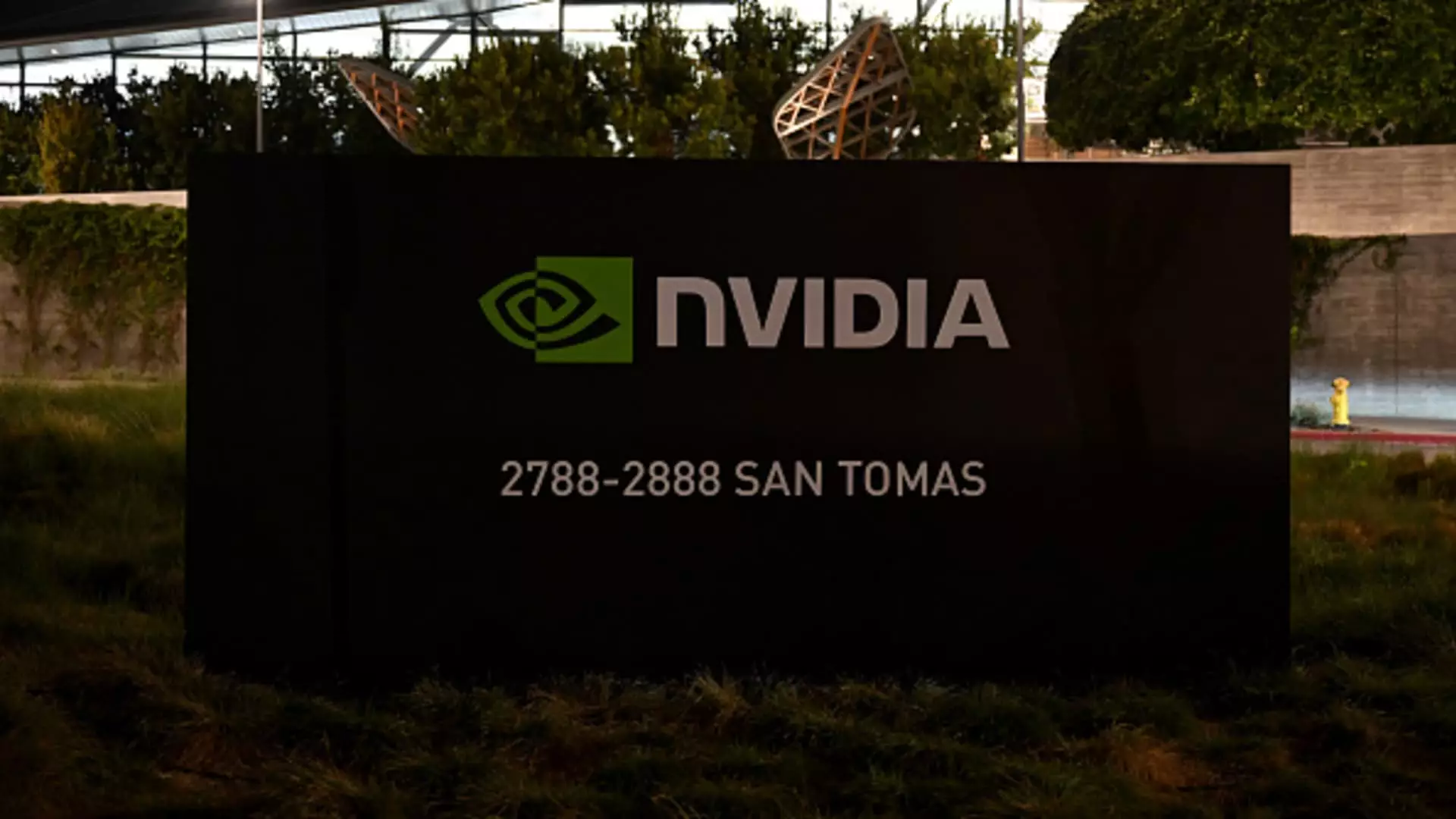In a striking revival of enthusiasm in the artificial intelligence (AI) sector, Nvidia’s CEO Jensen Huang recently made headlines during his address at the Goldman Sachs Communacopia + Technology Conference. His assertions paved the way for a renewed focus on AI investments, igniting interest among portfolio managers who have been seeking viable opportunities in a turbulent economic landscape. Huang boldly stated, “This generative AI is not just a tool. This is a skill,” framing the paradigm shift in technology not only as a trend but as a fundamental evolution that has spawned a new industry. His emphasis on the importance of AI not only resonated within tech circles but also sent Nvidia shares surging, reflecting the market’s eagerness to latch onto what he perceived as a $1 trillion opportunity centered on data centers.
Following Huang’s remarks, Nvidia’s stock experienced an impressive rally, appreciating by over 8%, a response that encapsulates the market’s fluctuating sentiments towards AI investments. This rise was not simply confined to Nvidia; stocks of related semiconductor companies such as Advanced Micro Devices (AMD), Marvell Technology, and Broadcom also posted double-digit gains. Portfolio manager John Belton attributed this positive response to the assurance conveyed in Huang’s predictions regarding sustained demand that could propel growth in emerging technologies over the next few years. His mention of collaboration with Taiwan Semiconductor Manufacturing to enhance manufacturing capacities highlighted a sector ripe with potential.
However, while Huang’s remarks infused optimism into the market, it is crucial to note that the landscape of AI investment is multifaceted. Investors are determining various strategies to capitalize on both immediate and long-term opportunities that the evolving AI frontier presents.
A Diverse Array of Opportunities in AI Investment
In the immediate term, CFRA analyst Angelo Zino identifies hardware manufacturers as key beneficiaries amidst the ongoing build-out phase of AI infrastructure. Companies such as AMD, which is intensifying its efforts to introduce competitive graphics processing units (GPUs), stand to gain significantly. This sentiment extends to networking firms like Broadcom and Marvell Technology, which are integral to the creation of custom silicon chips for industry giants, including Meta Platforms. Moreover, with increasing demands for memory, Micron Technology is anticipated to thrive, highlighting the importance of hardware in AI expansion.
Conversely, while tech behemoths like Apple are making headlines—with recent AI capabilities dubbed Apple Intelligence in the launch of the new iPhone 16—market analysts have exhibited skepticism. Some suggest that the new features may not deliver the groundbreaking upgrades anticipated by consumers, indicating a more cautious outlook for Apple in that aspect of market performance. Nonetheless, Zino remains upbeat about Apple’s longer-term prospects, particularly with its Vision Pro headset that could redefine consumer interaction with AI.
As companies from various sectors scramble to embrace AI, there are growing concerns regarding potential market oversaturation reminiscent of the dotcom bubble in the early 2000s. Mark Malek, Chief Investment Officer at SiebertNXT, has voiced concerns that hasty investments in AI ventures could lead to a repeat of that saga. With an assertive push toward advanced IT solutions, technology titans—including Microsoft, Alphabet, and Amazon—are likely to remain at the forefront, benefitting from AI-driven innovations, though the most significant developments might be taking root in the private sector, away from public scrutiny.
Malek’s emphasis on the “private companies lurking in the shadows” implies that significant technological advancements could emerge outside the established public entities we know today. This indication points to a burgeoning landscape where privately held firms may fundamentally alter the discourse on AI and its applications, an area that investors will increasingly need to monitor.
Jensen Huang’s declaration of generative AI as a transformational skill underscores a critical phase in the AI sector, showcasing vast opportunities and the potential for robust growth. As stocks react to these revelations and investors navigate this promising yet precarious landscape, a coherent strategy that balances immediate gains with a long-term vision will be crucial. The dynamic interplay between AI advancements and market reactions serves as a reminder of the need for vigilance in investment strategies as we enter this new technological frontier.

Leave a Reply